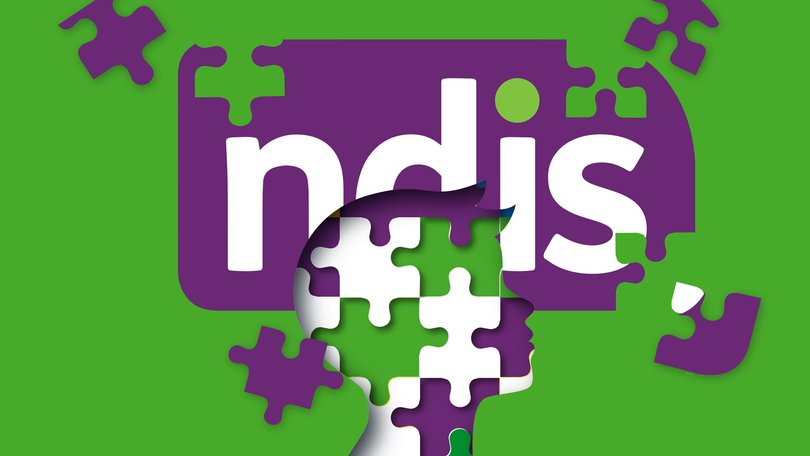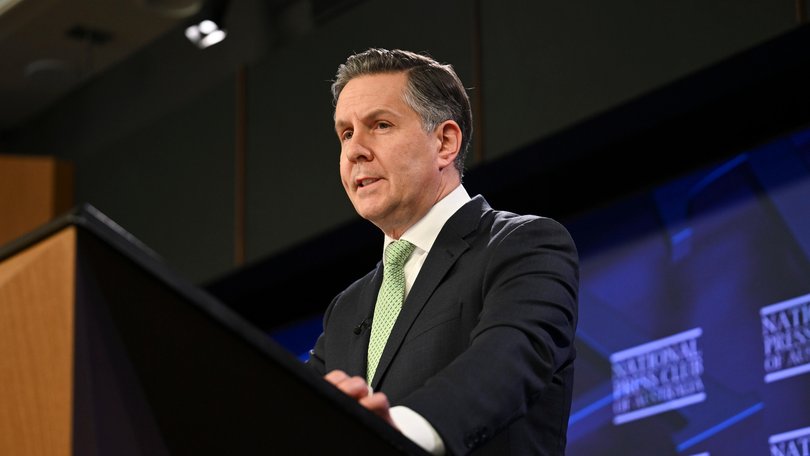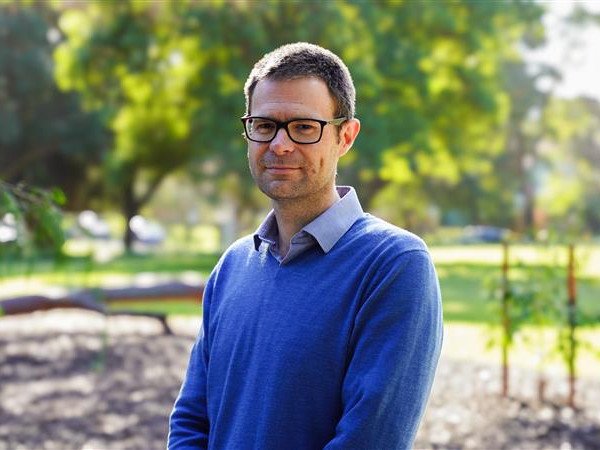NDIS: Disability sector warns overhaul of child autism eligibility could leave families without support
It wasn’t just families who were blindsided by the overhaul, state governments and the disability sector were also caught by surprise.

Health Minister Mark Butler is under pressure to explain a major NDIS overhaul after his surprise announcement to remove children with “mild to moderate autism” and developmental delay from the scheme.
Opposition, state governments, and the disability sector say they were caught by surprise when the Minister unveiled the changes at the National Press Club on Wednesday and have called for clarity.
Mr Butler said from 2027 tens of thousands of children currently on the NDIS will be moved to a new “Thriving Kids” program in an effort to tailor support and rein in the $46 billion scheme’s ballooning cost.
Sign up to The Nightly's newsletters.
Get the first look at the digital newspaper, curated daily stories and breaking headlines delivered to your inbox.
By continuing you agree to our Terms and Privacy Policy.He said they were “not the right fit” or accounted for when the scheme was created 12 years ago for permanent disabilities but that it had become the “only port in the storm” for families.
Mr Butler said the NDIS supports around one in 40 Australians directly and on average one in six Australian boys, adding “there are some regions of the country where it’s one in four”.
Mr Butler said a “drumbeat of stories of fraudsters and rip-off merchants” in the system was eroding faith in the scheme and vowed to restore “efficiency and integrity”.
While there are currently more than 260,000 NDIS service providers, only 16,000 are registered.
“We’ve got to introduce more discipline, more integrity into this scheme. There’s too much inefficiency and ill-discipline in the scheme,” he said.
But he admitted it wasn’t “rocket science” to figure out why, saying it was because the NDIS didn’t have the guardrails in those areas.
“We don’t have the sort of systems in place that you see in health, in aged care, in veterans’ care. Systems that make sure that providers in the area are up to scratch, they’re properly qualified, there’s good pricing discipline in the system,” he said.

The Albanese Government has committed $2 billion to the scheme over four years with the expectation that the State will collectively match the investment.
Despite announcing the new Thriving Kids program would be a Commonwealth–state funding split, several State ministers said they hadn’t been told about the program prior to the announcement.
Queensland Disability Minister Amanda Camm and WA’s Disability Services Minister Hannah Beazley both said they hadn’t been briefed and state funding conversations would continue.
“I became aware of that at the time of Minister Butler delivering his speech,” Ms Beazley said.
Mr Butler said he did not regret sidelining the States, claiming “Thriving Kids” was created in response to their own demands for tailored services — and expressed confidence State government’s would step up with funding.
“I committed $2 billion on behalf of the Commonwealth. The commitment by National Cabinet was that states would match that,” Mr Butler said.
“Obviously, not each of the States would do that. But collectively, the States would put in $2 billion to that well. I’m confident with that level of resourcing.”
Shadow Health Minister Anne Ruston called on her counterpart to give clarity to parents and providers, who had been distressed by the surprise overhaul, which she claimed “presented more questions than answers”.
“I’m concerned about the uncertainty and distress that this has caused to Australians who rely on the NDIS,” Senator Ruston said.
“He clearly hadn’t spoken to the states and territories who have to deliver these supports. He hadn’t spoken to his stakeholders. He hadn’t spoken to the opposition if he wanted bipartisan support.”
The Liberal Senator acknowledged that reforming the scheme was needed to reign in out-of-control spending levels and ensure long-term sustainability.
It was echoed by Opposition leader Sussan Ley who vowed to be “constructive” around reforming the NDIS but issued a stern warning to Anthony Albanese that she didn’t want to see children “fall through the cracks”.
“We will be constructive when it comes to the necessary reforms to the NDIS. That’s important. Labor has to demonstrate that it can reduce its reckless spending,” she said.
“We will be watching very closely. There’s no understanding of what it means for those young people who will no longer be covered. There’s no certainty for those families.”
But Mr Butler vowed he wouldn’t let “children slip between two stools” or “leave them high and dry”.
“I want to reassure parents, there is no way I’m going to let children slip between two stools,” Mr Butler said.
It comes as the Prime Minister and Treasurer Jim Chalmers hosted day three of the economic reform roundtable in Canberra, focusing on budget sustainability.
Dr Chalmers noted Mr Butler’s announcement in his opening address on Thursday, welcoming reform and noting the NDIS placed significant structural pressure on the budget.
“We’ve made good progress on the NDIS and Mark’s laid out the challenge going into the future. We have got the NDIS growth down substantially but (it’s) still growing very quickly,” he said.
Greens Senator Jordon Steele-John slammed Mr Butler for stating that autism should be removed because it wasn’t a “permanent disability”.
“Autism is lifelong. There is no growing out of it. The Minister’s suggestion otherwise denies reality and risks stripping people of the supports they need to thrive,” Senator Steele-John said.
But Mr Butler used a morning media blitz on Thursday to clarify his wording.
“I recognise autism is a permanent condition for most people and we’re not trying to fix it,” he said.
“We’re not trying to cure it. We’re trying to give people the supports that are appropriate for them.
“Autism may indeed stay with a person for their entire life and supports around them will be needed, but not necessarily the sort of supports you see in a scheme for permanent significant disability.”
Mr Butler said under NDIS, the cohort were “over-serviced”.
“There’s a very significant degree of over-servicing within the NDIS of these children,” he said.
“An average child with moderate levels of developmental delay is getting more than 70 sessions of therapy every single year.
“Now, it’s unheard of in the healthcare system you’d have that level of servicing.”

The Kids Research Institute Australia’s Professor Andrew Whitehouse welcomed the overhaul, adding the sector feared cost blowouts were undermining the NDIS’ “social licence”.
He also believed there were other and “much more effective” ways to help children with mild autism and developmental delays than through the NDIS, but added it had been a game changing in the interim.
“The NDIS is on an unsustainable path and we need to find ways to do more positive reforms,” he said.
“I think those of us in the sector are really worried about this because we have seen the enormous gains that the NDIS has brought to our community.
“To keep that significant budget item, we have to keep showing how important it is.”
He said while Mr Butler offered little detail, he viewed the address as “outlining a direction of travel” in the next 12 months.
